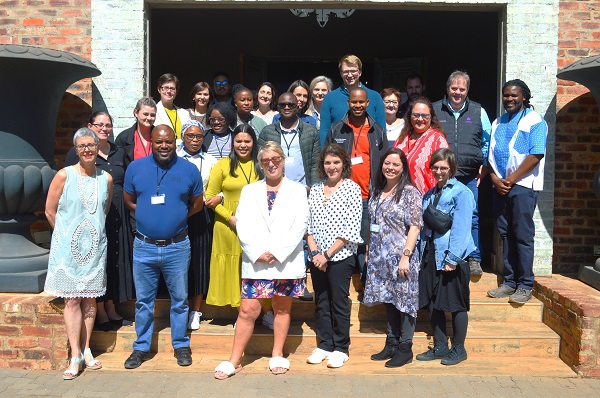From 3 to 6 September 2024, the Optentia research unit at the North-West University (NWU) hosted the Diverse Qualitative Research Perspectives Festival at The Roots Conference Centre, Potchefstroom.
The idea of having such a festival originated among members of the Strengths-based Studies and Interventions sub-programme of Optentia. Prof Marita Heyns, leader of this programme, put the programme together and facilitated the event. The festival created a dynamic platform for exchanging innovative methodologies and best practices in qualitative research. Attendees included master's and doctoral students, researchers, practitioners, community partners and industry members, all with a keen interest in qualitative research.
Over the four-day event, participants enjoyed informative sessions led by a distinguished panel of speakers. Prof Jaco Hoffman, a leading NWU expert in ageing and generational dynamics, welcomed everyone, setting the stage for engaging discussions.
Four extra-ordinary professors from different disciplinary backgrounds who are all affiliated with the Optentia research unit of the North-West University, presented workshops on a range of topics that served to empower participants to become more adept qualitative researchers. They were Prof Ansie Kitching (Educational psychology, University of the Western Cape), Prof Linda Theron (professor in educational psychology, University of Pretoria), and international guests Prof Linda Liebenberg (PhD in sociology, Dalhousie University, Canada) and Prof Christine Wekerle (clinical psychologist, McMaster university, Canada). Other prominent speakers of the NWU includedProff Vera Roos, Elmari Deacon, Karel Botha and Caroll Hermann, who respectively presented workshops on the Mmogo method, how to live positively with a chronic condition (diabetes), Interactive Qualitative Analysis, and the interesting topic of Bonsaichology as a qualitative research tool. Prof Blessed Ngwenya, an associate professor in inclusion and decolonial praxis, presented a thought-provoking lecture on "Decolonising research: Implications for qualitative studies".
Prof Wekerle presented a guest lecture titled “Youth resilience research: Lessons learned and opportunities for improvement”. In their joint presentation, Prof Wekerle and Prof Theron unpacked the critical issue of publishing qualitative research, particularly in high-impact journals such as Child Abuse & Neglect and Child Protection & Practice. The presenters also provided detailed guidance on submitting manuscripts for publication, offering valuable practical advice for emerging researchers on positioning themselves within the academic community and maximising their chances of getting published. The session underlined the importance of publishing for career advancement, contributing to global knowledge, and promoting further research.
Various interactive workshops also offered participants the opportunity to gain experience in qualitative research methodologies. These included Photovoice as a foundation for arts-based participative action research, Interactive qualitative analysis, and Positive experiences in living with a chronic condition. Other key sessions delved into community-based research ethics, forensic accountancy frameworks, and participatory approaches to qualitative analysis. The training event was accredited with the HPCSA and earned HPCSA registered participants 21 Continued Professional Development (CPD) points.
The festival also provided valuable networking opportunities, with participants exchanging ideas and establishing connections for future collaborations.
The festival was a great success, as attendees expressed gratitude for the knowledge shared. Both emerging and established researchers left the event with new insights and practical tools to further their qualitative research endeavours.
The Optentia research unit continues to play a pivotal role in advancing qualitative research, and the success of this festival marks another milestone in its ongoing commitment to promoting transformative practices within the research community.
With new ideas sparked and connections made, attendees left the festival more knowledgeable and energised to contribute to transformative research in their respective fields.
The festival was a great success, as attendees expressed gratitude for the knowledge shared

